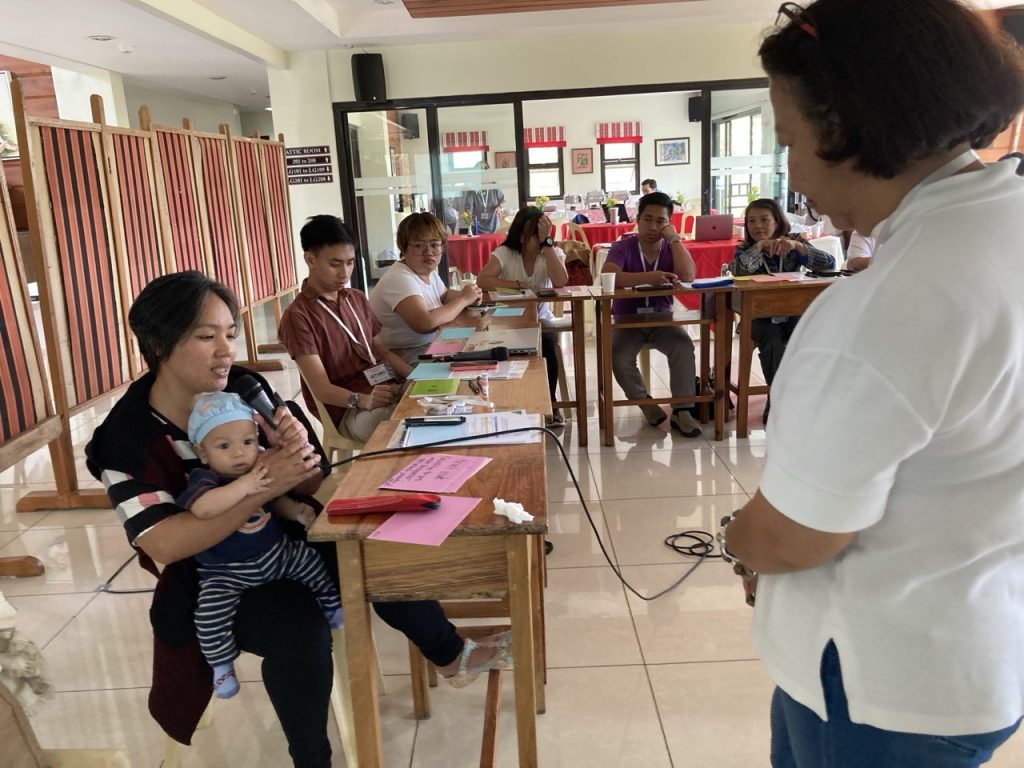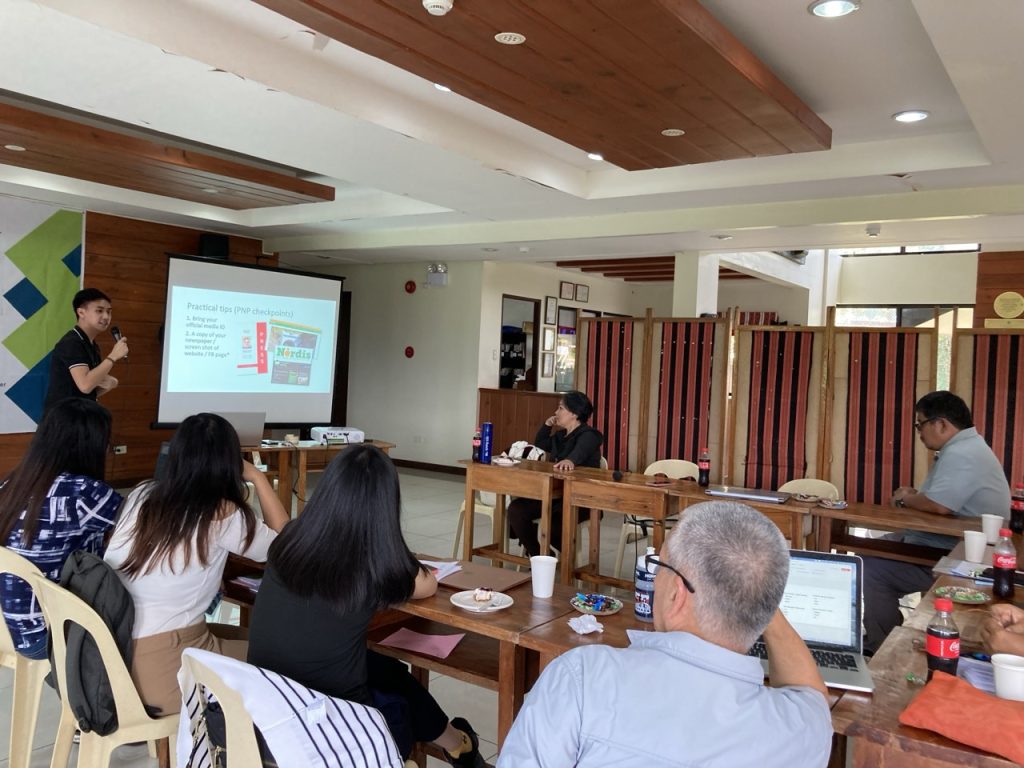Keeping busy: Safety training for journalists around the country
Keeping busy: Safety training for journalists around the country
By Ann Lourdes C. Lopez
This year, up till August, we have been kept busy organizing and implementing training activities for journalists on press freedom and journalist safety. It has been a challenging journey, confronting decades-old issues of threats and attacks on media workers and the encroachment on our democratic rights of free expression and civic participation.
I am grateful to have been working with a prodigiously dedicated team at AIJC and with committed partners who are not only experts in this field called journalism but also stalwart veterans of the profession, living and breathing its perils and risks.
In Baguio and Cagayan de Oro, we conducted a training of trainers on media safety for local journalists and campus journalists. We interacted in Baguio with participants from three provinces (Benguet, Mt. Province, and Ilocos Norte), while in Cagayan de Oro, participants came from five provinces (Misamis Oriental, Misamis Occidental, Bukidnon, Lanao del Norte, and Surigao del Norte). That’s already eight provinces covered for only two training activities.
We also had two batches of a basic safety training for journalists in print, broadcast and online media who cover the various provinces and municipalities of the Bangsamoro Autonomous Region in Muslim Mindanao (BARMM). These were done in Davao City and Zamboanga City.
In preparing for the training, we had focus group discussions with prospective participants, both online and in-person. These proved helpful for the training needs analysis we did, enabling us to customize the training design to the community context and local needs.
Resource persons during the training addressed practical issues, conducted workshops, and facilitated simulation exercises on such topics as physical safety, legal issues, digital security, gender issues, and psychosocial wellbeing. For the training of trainers, participants further learned about training and facilitation tips and methodologies.
For these “all-expenses-paid” training programs, we’re thankful to the funders: the British Embassy Manila, the UNESCO International Programme for the Development of Communication (IPDC), and the Embassy of Switzerland in the Philippines.
As we continue in this advocacy of safeguarding media freedom and securing journalist safety, I am cheered on by reassuring words from our training participants.
Jethro Bryan Andrada, correspondent of the Philippine Daily Inquirer and faculty member of the University of the Philippines-Baguio, describes the program as “holistic,” with the discussions having both “breadth and depth.” He reflects on the impact of the training on
his commitment to press freedom and the role of the news media, “I gained a deeper appreciation of the profession. We sacrifice and risk so much to practice our craft but I guess that is the trade-off of being watchdogs of society.”
Rimat contentedly listens as his mother, Kimberlie Ngabit-Quitasol, managing editor of the Northern Dispatch in Baguio City, shares an insight during the training.
Jethro Bryan Andrada, correspondent of the Philippine Daily Inquirer and faculty member of the University of the Philippines-Baguio, discusses the output of his group during the practicum.

